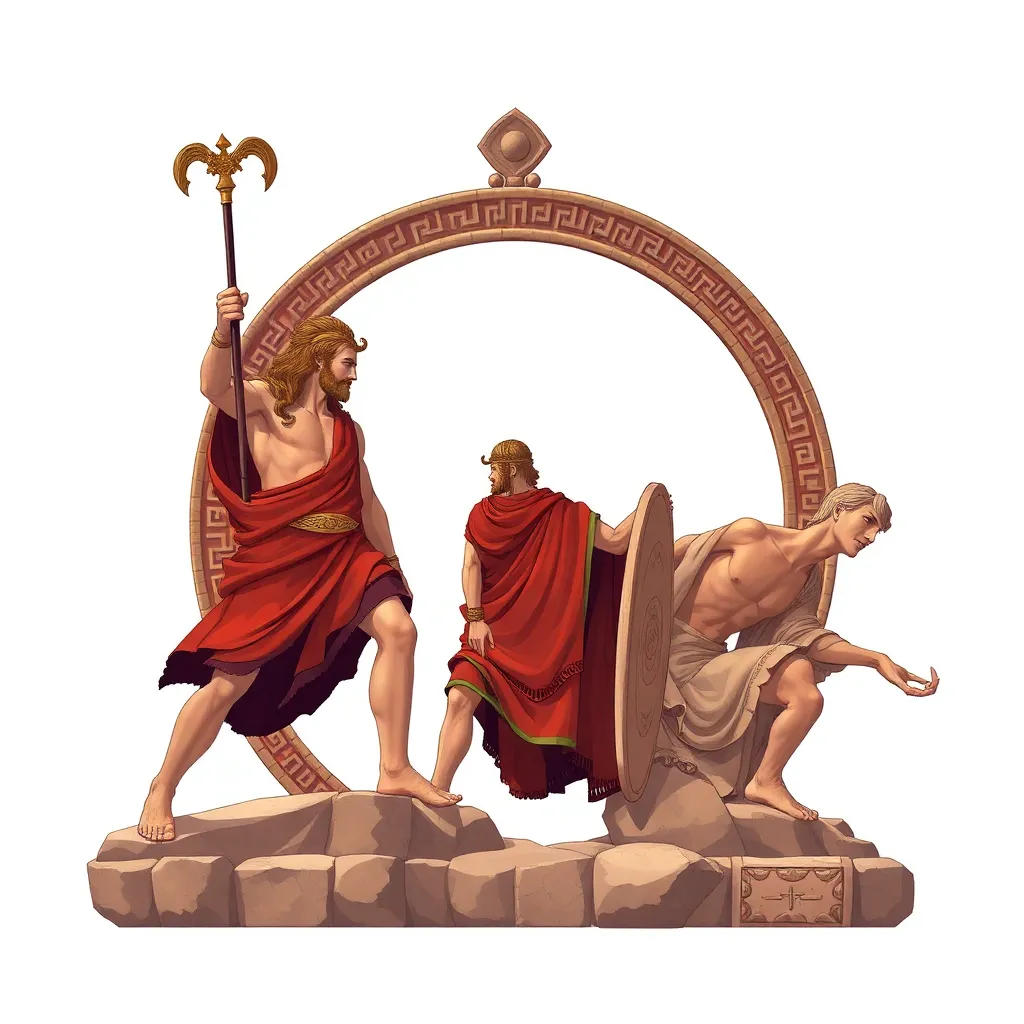The Role of the Epic Hero in The Iliad: Archetypes and Analysis
I. Introduction
The concept of an epic hero has been a cornerstone of storytelling throughout human history. Defined as a larger-than-life figure who embodies the values of their culture, epic heroes are often central to the narratives in which they appear. In ancient Greek literature, one of the most significant representations of the epic hero is found in Homer’s The Iliad.
The Iliad is an epic poem that recounts events during the final weeks of the Trojan War, a legendary conflict between the city of Troy and the Greek states. This work not only provides a gripping narrative filled with battles and divine interventions but also offers profound insights into human nature and the complexities of heroism.
This article aims to explore the archetypes and significance of the epic hero within The Iliad, delving into historical context, character analysis, and thematic exploration.
II. Historical Context of The Iliad
The backdrop of The Iliad is the Trojan War, a pivotal event in Greek mythology that has captured the imagination of countless generations. The war, attributed to the abduction of Helen, the wife of Menelaus, by Paris of Troy, is steeped in themes of love, betrayal, and honor.
Epic poetry held immense significance in ancient Greek culture as a means of preserving history, culture, and moral values. These narratives were often recited orally, making them foundational texts for Greek identity.
Homer, traditionally considered the author of The Iliad and its companion piece, The Odyssey, has had a profound influence on literature, establishing archetypes and themes that resonate in works throughout history, from Virgil’s Aeneid to contemporary storytelling.
III. Characteristics of the Epic Hero
The epic hero is characterized by several key traits that set them apart from ordinary individuals:
- Physical prowess and bravery: Epic heroes often possess extraordinary strength and fighting skills, making them formidable in battle.
- Noble lineage and personal honor: Many heroes are of noble birth or possess a strong sense of duty and honor, which drives their actions.
- The hero’s journey and internal struggles: Epic heroes typically undergo a significant journey that tests their character and often involves deep internal conflicts.
IV. Major Epic Heroes in The Iliad
Within The Iliad, two epic heroes stand out prominently: Achilles and Hector.
A. Achilles: The quintessential epic hero
Achilles is often considered the epitome of the epic hero. His unmatched strength and martial prowess make him a central figure in the Trojan War.
- Strengths and weaknesses: Achilles is invincible in battle except for his heel, representing both his physical superiority and his vulnerability.
- Personal conflict and rage: Much of the narrative revolves around Achilles’ wrath, particularly after the death of his close friend Patroclus, showcasing how personal emotions can drive heroic actions.
B. Hector: The noble warrior
In contrast to Achilles, Hector represents the noble warrior archetype, embodying duty and honor.
- Contrast to Achilles: While Achilles is driven by personal glory and rage, Hector fights for his city and family, illustrating different motivations behind heroism.
- Themes of duty and honor: Hector’s commitment to defending Troy and his family highlights the theme of honor in warfare, making him a tragic yet admirable figure.
V. Archetypes of the Epic Hero
The epic hero can be categorized into various archetypes, each representing different aspects of heroism:
- The Tragic Hero: Heroes like Achilles often face a tragic fate, where their choices lead to downfall, emphasizing the interplay of fate and free will.
- The Reluctant Hero: Characters who exhibit internal conflict and growth, such as Odysseus in The Odyssey, showcase the complexities of heroism.
- The Avenger: Heroes seeking vengeance, such as Achilles after Patroclus’ death, embody themes of justice and retribution.
VI. The Role of the Epic Hero in Plot Development
Epic heroes serve as catalysts for conflict within The Iliad, propelling the narrative forward through their actions and decisions.
- Catalysts for conflict: The pride and rage of Achilles instigate significant conflicts, influencing the course of the Trojan War.
- Impact of heroism on character relationships: The relationships between characters, such as Achilles and Agamemnon, are often defined by heroic values and conflicts.
- The hero’s influence on the narrative structure: The actions of epic heroes shape the plot, leading to climactic battles and resolutions.
VII. Thematic Analysis of the Epic Hero
The epic hero in The Iliad embodies several enduring themes:
- Honor and glory in warfare: The pursuit of glory in battle is a driving force for many characters, reflecting cultural values.
- The concept of fate versus free will: The struggle between predetermined fate and personal choice is a central theme, particularly in Achilles’ journey.
- The human condition and mortality: The heroes’ encounters with death and loss highlight the transient nature of life and the inevitability of mortality.
VIII. Conclusion
In summary, the epic hero plays a fundamental role in The Iliad, embodying the values and struggles of human existence. Through characters like Achilles and Hector, Homer explores complex themes of honor, fate, and the human condition.
The legacy of epic heroes continues to resonate in literature, shaping our understanding of heroism and virtue. As we reflect on the narratives of the past, we find that the lessons of heroes like Achilles and Hector remain relevant in contemporary discussions of courage, honor, and the complexities of the human experience.




